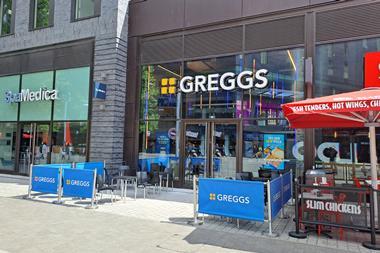If reduced apple crops in China, Poland and Spain lead to a price increase, a hike in tax on cider could really upset the apple cart. Mintec’s Robert Miles reports
Cider sales have boomed in the UK in the past four years, taking share from lagers and becoming the fastest-growing drinks category.
However, cider's growth prospects have been thrown into jeopardy by the government's determination to impose a 10% tax hike on cider at a time when production costs could be about to start rising. Although it was forced to backtrack and said it would not implement the tax before the election, the threat of such an increase hangs like the sword of Damocles over the industry's head.
Many of the costs associated with cider production are similar to beer, namely packaging, processing, transportation and marketing costs. The key difference between the two products is the raw ingredient, with cider being produced from apples or pears rather than grain. These costs are higher for cider than for beer and this is one argument for them to have different rates of duty.
Unlike grains, apple crops take a while to establish and can't be rapidly turned around. Making a commitment to the industry takes a great deal of faith in its future and this may have been dented by the government's announcement.
The large increase in production of cider over the past few years has led to an increase in the volume of apples consumed by the industry, with cider production estimated to have used 45% of the UK apple crop last year and additional supplies of concentrated juice imported from the rest of the world when needed.
A number of the major producers have their own orchards and can count on these as fixed suppliers. However, the large volume required means the available crop volumes are insufficient and external suppliers are also required.
UK apple production currently supplies only 20% of the total UK retail and processing apple market, and so imports are crucial to the market. China continues to be the driving force behind changes in the world apple juice market, accounting for more than half of global apple juice supplies and more than 80% of global apple juice exports.
Throughout most of 2009, global apple juice prices were relatively stable if historically low as large global supplies were available throughout the year and demand was just below supply.
However, China's concentrated apple juice production is expected to fall by 17% in 2009/10 due to a lack of demand and continuing high levels of stock. In the EU, concentrated apple juice production is expected to decline by 15% due to reduced area in Poland and pollination problems in Spain.
Apple juice prices have continued to be influenced by large stocks of concentrated apple juice on the market. There has been reduced demand from the processing industry and ample fruit supply has put a strong downward pressure on producer and market prices. But if supplies tighten up and costs have to rise, a potential tax rise could not come at a worse time.
Cider sales have boomed in the UK in the past four years, taking share from lagers and becoming the fastest-growing drinks category.
However, cider's growth prospects have been thrown into jeopardy by the government's determination to impose a 10% tax hike on cider at a time when production costs could be about to start rising. Although it was forced to backtrack and said it would not implement the tax before the election, the threat of such an increase hangs like the sword of Damocles over the industry's head.
Many of the costs associated with cider production are similar to beer, namely packaging, processing, transportation and marketing costs. The key difference between the two products is the raw ingredient, with cider being produced from apples or pears rather than grain. These costs are higher for cider than for beer and this is one argument for them to have different rates of duty.
Unlike grains, apple crops take a while to establish and can't be rapidly turned around. Making a commitment to the industry takes a great deal of faith in its future and this may have been dented by the government's announcement.
The large increase in production of cider over the past few years has led to an increase in the volume of apples consumed by the industry, with cider production estimated to have used 45% of the UK apple crop last year and additional supplies of concentrated juice imported from the rest of the world when needed.
A number of the major producers have their own orchards and can count on these as fixed suppliers. However, the large volume required means the available crop volumes are insufficient and external suppliers are also required.
UK apple production currently supplies only 20% of the total UK retail and processing apple market, and so imports are crucial to the market. China continues to be the driving force behind changes in the world apple juice market, accounting for more than half of global apple juice supplies and more than 80% of global apple juice exports.
Throughout most of 2009, global apple juice prices were relatively stable if historically low as large global supplies were available throughout the year and demand was just below supply.
However, China's concentrated apple juice production is expected to fall by 17% in 2009/10 due to a lack of demand and continuing high levels of stock. In the EU, concentrated apple juice production is expected to decline by 15% due to reduced area in Poland and pollination problems in Spain.
Apple juice prices have continued to be influenced by large stocks of concentrated apple juice on the market. There has been reduced demand from the processing industry and ample fruit supply has put a strong downward pressure on producer and market prices. But if supplies tighten up and costs have to rise, a potential tax rise could not come at a worse time.

















No comments yet